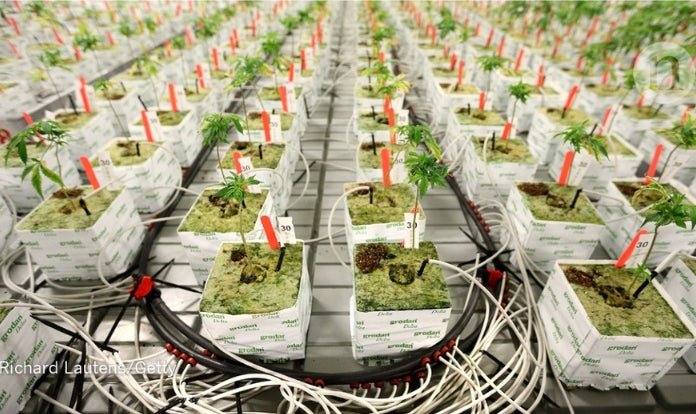The center’s primary focus will be to evaluate the effects of cannabis legalization in the state and provide insights for policymakers creating rules and regulations to govern the new industry.

As Americans gather on this national day of Thanksgiving to reunite with family to express gratitude while consuming large amounts of food and beverages this long holiday weekend, many of them will surely be giving thanks for marijuana legalization in their respective states this year. One of those states is Minnesota, where lawmakers passed and Gov. Tim Walz (D) signed H.F. 100, which legalized adult-use cannabis this past May.
As part of that seminal piece of legislation, legislators set aside a $2.5 million annual appropriation for a new Cannabis Research Center, launched this week at the University of Minnesota. Tax revenue collected from recreational sales will fund the research facility moving forward.
Researchers will predominantly use their funding to analyze the impact of marijuana legalization on Minnesotans and advise health officials and lawmakers on best practices for creating guidelines to monitor and promote the potentially lucrative and popular sector.
The Cannabis Research Center’s first director is Professor Traci Toomey, a public health policy expert focusing on substance use control policies. In an announcement from the university’s School of Public Health, Toomey said, “We’re extremely grateful to the Minnesota Legislature and Governor Walz for their leadership and support in creating Minnesota’s first-ever research center focused on cannabis here at the School of Public Health. I am excited for the opportunity to lead the Cannabis Research Center (CRC) and, alongside my colleagues at the School of Public Health, to conduct innovative research on the health effects of adult-use cannabis legalization on people and communities across the state, including prevention and treatment of substance use disorders, equity issues, education, and decriminalization.”
"We’re extremely grateful to the Minnesota Legislature and Governor Walz for their leadership and support in creating Minnesota’s first-ever research center focused on cannabis here at the School of Public Health. I am excited for the opportunity to lead the Cannabis Research Center (CRC) and, alongside my colleagues at the School of Public Health, to conduct innovative research on the health effects of adult-use cannabis legalization on people and communities across the state, including prevention and treatment of substance use disorders, equity issues, education, and decriminalization.”
- Professor Traci Toomey, Director of the Cannabis Research Center
During the announcement, university officials highlighted that knowledge concerning the long-term effects of marijuana legalization “is limited and inconsistent, due largely to the lack of formalized evaluations, robust data sets and strong research programs.” To help guide its research, the CRC will utilize several pre-established core principles, which include:
- Leading the scientific community in cannabis research.
- Upholding anti-racist principles through prioritizing questions related to social equity and incorporating anti-racist practices into collaborations, research questions and methods, interpretations, and communications.
- Maximizing the health benefits and minimizing potential health problems related to marijuana by addressing timely questions now and in the future.
- Becoming a trusted source of cannabis-related research information for individuals, communities, and organizations.
“We will work collaboratively with state and local agencies and community-based organizations to explore and identify the initial research priorities related to cannabis use in Minnesota. I am confident that, under Dr. Toomey’s leadership, the CRC will provide the data and evidence our policymakers need to make informed decisions about cannabis to prevent inequity and adverse health impacts throughout Minnesota,” said Timothy Beebe, interim dean of the University of Minnesota School of Public Health.
"We will work collaboratively with state and local agencies and community-based organizations to explore and identify the initial research priorities related to cannabis use in Minnesota. I am confident that, under Dr. Toomey’s leadership, the CRC will provide the data and evidence our policymakers need to make informed decisions about cannabis to prevent inequity and adverse health impacts throughout Minnesota.”
- Timothy Beebe, Interim Dean of the Univ. of Minnesota School of Public Health
One of the main areas of focus for researchers at the CRC will be to investigate the effects of cannabis on underage users, who are typically more vulnerable to the harms associated with marijuana abuse.
In a separate interview with Minnesota Public Radio (MPR), Toomey explained, “For young people, their brain is still developing. And so, there (are) some concerns about the effects of cannabis on brain development. And the earlier people start using, there’s some concern that they may be more likely to develop a cannabis use disorder later in their life.”
"For young people, their brain is still developing. And so, there (are) some concerns about the effects of cannabis on brain development. And the earlier people start using, there’s some concern that they may be more likely to develop a cannabis use disorder later in their life.”
- Professor Traci Toomey, Director of the Cannabis Research Center
Another equally important area of concern for Toomey and her colleagues will be studying how the legalization of adult-use cannabis affects vital issues like public safety and health equity.
“What we see sometimes happens with other substances like alcohol and tobacco is that sometimes some communities are disproportionately targeted by marketing, or maybe they have more of the stores or dispensaries in their neighborhood because some people want to buy the product, but they don’t want those stores in their neighborhood,” said Toomey.
The groundbreaking program is another example of how Minnesota is taking a much more progressive approach to legalization reform than some other states. It is not enough to simply legalize and then let market forces handle the rest. Understanding the importance of utilizing real-time scientific research to formulate policies and procedures ensures not only the success of the program but its safety as well.







































